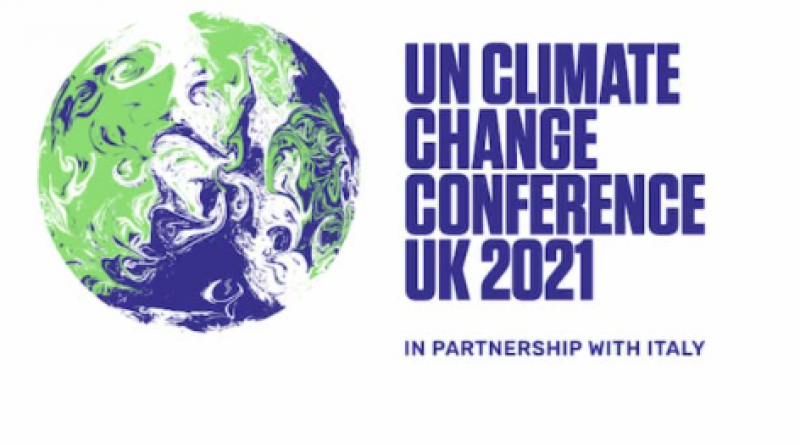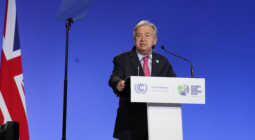UK COP PRESIDENCY – COP President Daily Media Statement and Latest Announcements 8th November

List of announcements, 8th November:
- Global leaders commit to a shift towards locally-led adaptation through over 70 endorsements to the Principles for Locally Led Adaptation and over $450m mobilised for initiatives and programmes enhancing locally-led approaches [LIFE-AR, FLLoCA, CRPP and the Taskforce on Access to Finance].
- Race to Resilience campaign brings together initiatives that are strengthening the urban, coastal and rural resilience of 2 billion people worldwide.
- New climate providers have committed to balance through the Champions Group on Adaptation finance.
- $232 million has been committed to the Adaptation Fund, the highest single mobilisation to the Fund and more than double the previous highest collective mobilisation with a $20m contribution from the UK. Commitments came from from the USA, Canada, Sweden, Finland, Ireland, Germany, Norway, Qatar, Spain, Switzerland, the UK and the Quebec and Flanders governments.
- The UK has announced £290 million in new funding for adaptation today, including £274 million for the Climate Action for a Resilient Asia (CARA) programme.
- New climate providers have committed to balance through the Champions Group on Adaptation finance.
- 88 countries are now covered by Adaptation Communications or National Adaptation Plans to increase preparedness to climate risks, with 38 published in the last year.
Press conference opening statement from COP President Alok Sharma:
Welcome everyone to Week Two of COP26.
Today is, as you know, Adaptation and Loss and Damage Day. And these topics, of course, are more important than ever.
As we know, over the last year we have seen extreme weather changes across the world.
From floods in Central Europe and China, wildfires in North America and Australia,
to what some have described as the world’s first climate induced drought in Southern Madagascar.
Nowhere is immune to climate change and this is precisely why we must come together to forge global agreement here in Glasgow, responding to adaptation needs which is vital.
Today Ministers are starting their work on the negotiations.
Together we face the arduous task of building political consensus between almost 200 countries.
Finding consensus is not going to be straightforward.
But the progress made last week demonstrates that a constructive spirit amongst negotiators exists.
And here in Glasgow we have a unique opportunity to reach an historic outcome and I am committed to bringing countries together,
We want to forge an agreement that means we see more action this decade to help keep the limit of 1.5 degree global temperature rise in reach.
Now during the Informal Stocktaking Plenary which was held this morning, I outlined how we will work during this week.
I also announced ministerial pairings on key topics.
These include: adaptation; loss and damage; finance; keeping 1.5 alive; and of course the key rulebook issues of: Common Time Frames; Article 6 on carbon markets; and transparency.
My priority now is pace.
There needs to be a sense of urgency in all our negotiations.
The science is clear, we have no time to lose, and I will ensure that negotiations proceed in a timely manner. Whilst of course ensuring transparency and inclusivity.
Last week countries made commitments which will all help to protect our planet but they must be delivered on and accounted for.
Today, on Adaptation and Loss and Damage Day, the spotlight will be on those nations and communities which are most vulnerable to climate change.
Those whose voices are too often left unheard.
And we know that even if we stopped polluting our world tomorrow, there will be negative consequences for many millions.
And that is why issues such as adaptation are so important.
Now I am pleased to see progress on these topics today and particularly welcome the commitments to the Adaptation Fund which will be made in the next few hours,
Including from the UK, to support vulnerable communities to respond to climate change.
Developed countries and development banks recognise they need to increase levels of finance for adaptation,
and I hope we will be able to capture this renewed commitment in the COP26 negotiated outcome.
Those of you who have followed this process will know that loss and damage has historically been seen as a polarising issue.
But I am encouraged that the mood music has changed somewhat, and there is now a practical recognition that action is needed on this topic, in the face of growing impacts.
The conclusion of discussions within the Subsidiary Bodies on the Santiago Network is a testament to that,
and paves the way for greater resources to avert, minimise and address loss and damage.
Climate vulnerable communities are particularly at the forefront of my mind, and will be so throughout these negotiations.
They, and the generations to come, will not forgive us if we fail to deliver in Glasgow.
8 November 2021
COP26




